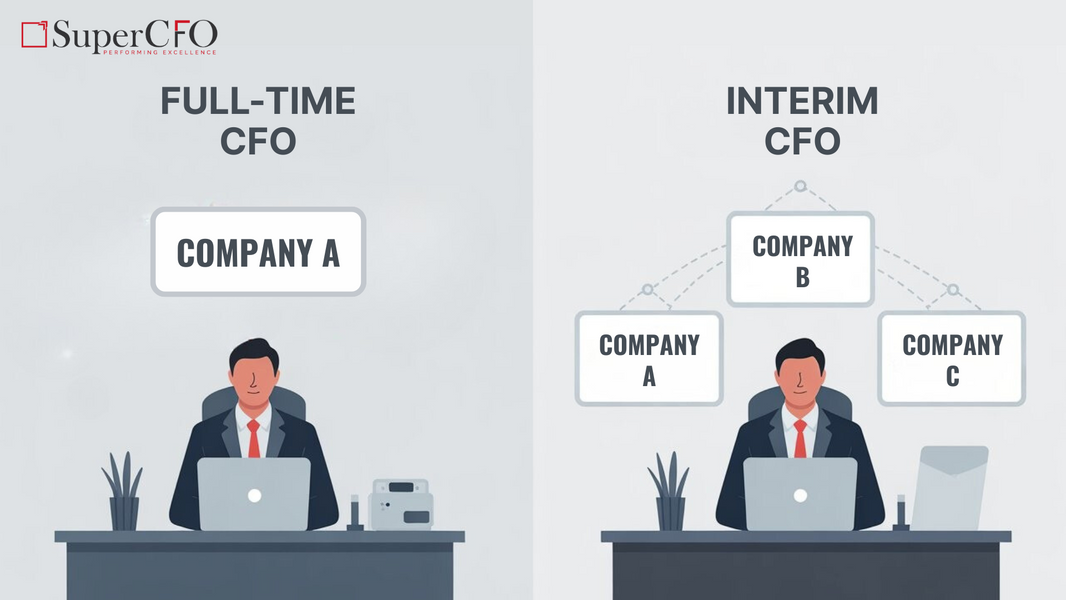Fundraising has evolved. It’s no longer just a transactional activity where a company raises capital to fund operations. Investors today are not just looking at the product or market potential; they are assessing leadership, governance, and long-term viability.
And at the heart of this stands the Chief Financial Officer (CFO). Beyond preparing financial models, the modern CFO is uniquely positioned to lead fundraising as a strategic partner, aligning capital with the business journey.
While most discussions focus on valuation models and investor decks, the real power of a CFO in fundraising lies in the less obvious levers they control, areas that often go unnoticed, but significantly impact outcomes.
1. Orchestrating Data Rooms and Investor Readiness
A compelling pitch deck grabs attention, but what secures commitment is a smooth due diligence process. CFOs design and manage structured, audit-ready data rooms, ensuring consistency across financial, legal, and compliance documentation. This readiness not only accelerates fundraising but also signals maturity to investors.
2. Balancing Growth Capital With Exit Pathways
Capital raises should be connected to long-term outcomes. CFOs ensure that each round aligns with potential exit strategies, whether IPO, M&A, or strategic buyout, so that today’s funding decisions don’t limit tomorrow’s possibilities.
3. Managing Signalling Risk
The timing, size, and composition of a funding round send strong signals to the market. CFOs are best positioned to manage this signalling risk, carefully calibrating when to raise, how much to raise, and with whom, avoiding optics like down rounds or mismatched investors that can hurt perception.
4. Optimising Capital Efficiency, Not Just Availability
Raising large sums often leads to undisciplined spending. CFOs advocate for milestone-based deployment, ensuring the right quantum of funding is raised at the right time. This avoids overfunding, prevents premature scaling, and maximises capital efficiency.
5. Institutionalising Governance Early
Investors reward companies that demonstrate maturity. CFOs embed governance frameworks, reporting standards, compliance practices, and board-ready processes, well before they become mandatory. This proactive institutionalisation builds credibility and accelerates investor confidence.
6. Creating Investor “Stickiness”
Fundraising doesn’t end with a cheque. CFOs create systems for regular financial transparency, scenario modelling, and strategic updates, turning investors into partners who remain engaged through multiple rounds. This “stickiness” strengthens investor loyalty and reduces friction for future raises.
From Finance Head to Strategic Partner
Historically, CFOs were seen as number-crunchers. Today, they are:
-
Investor-facing leaders who articulate not just financials, but the strategic journey.
-
Risk managers who navigate timing, signalling, and capital structure.
-
Strategic architects who align funding with scalability and exit opportunities.
-
Trust-builders who institutionalise governance and create transparency.
In short, when the CFO leads fundraising, it signals to investors that the company is structured, disciplined, and future-ready.
The Payoff of CFO-Led Fundraising
Companies where CFOs play a central role in fundraising often see:
-
Faster due diligence and smoother deal closure
-
More balanced and efficient use of capital
-
Investor confidence is translating into better valuations
-
Stronger, longer-term relationships with investors
In today’s complex funding landscape, CFOs must step out of the back office and into the spotlight. By leading fundraising as strategic partners, they don’t just secure capital; they safeguard reputation, align funding with growth, and build trust that compounds across every round.
For businesses aiming to scale, this shift is critical: the CFO is no longer just a financial gatekeeper but the architect of future success.
Looking to raise funds with confidence and clarity? Discover how SuperCFO can partner with you to structure, negotiate, and close your next funding round.










